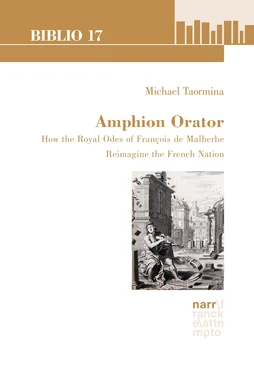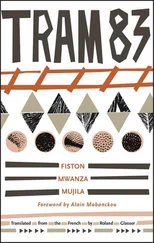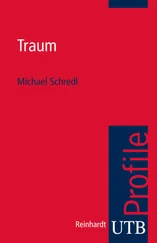Michael Taormina - Amphion Orator
Здесь есть возможность читать онлайн «Michael Taormina - Amphion Orator» — ознакомительный отрывок электронной книги совершенно бесплатно, а после прочтения отрывка купить полную версию. В некоторых случаях можно слушать аудио, скачать через торрент в формате fb2 и присутствует краткое содержание. Жанр: unrecognised, на английском языке. Описание произведения, (предисловие) а так же отзывы посетителей доступны на портале библиотеки ЛибКат.
- Название:Amphion Orator
- Автор:
- Жанр:
- Год:неизвестен
- ISBN:нет данных
- Рейтинг книги:4 / 5. Голосов: 1
-
Избранное:Добавить в избранное
- Отзывы:
-
Ваша оценка:
- 80
- 1
- 2
- 3
- 4
- 5
Amphion Orator: краткое содержание, описание и аннотация
Предлагаем к чтению аннотацию, описание, краткое содержание или предисловие (зависит от того, что написал сам автор книги «Amphion Orator»). Если вы не нашли необходимую информацию о книге — напишите в комментариях, мы постараемся отыскать её.
Amphion Orator — читать онлайн ознакомительный отрывок
Ниже представлен текст книги, разбитый по страницам. Система сохранения места последней прочитанной страницы, позволяет с удобством читать онлайн бесплатно книгу «Amphion Orator», без необходимости каждый раз заново искать на чём Вы остановились. Поставьте закладку, и сможете в любой момент перейти на страницу, на которой закончили чтение.
Интервал:
Закладка:
imagoimageThis book does not propose to unravel such a Gordian knot. Rather, it by-passes the circular dead end in which Malherbe studies languished until fairly recently.3 The formalist impulses of twentieth-century criticism, bolstered by testimony cherry-picked from Malherbe and his contemporaries, encouraged successive generations of literary historians to reduce the poet to a technician.4 This assessment must have had the appearance of self-evidence, echoing as it does early criticism of Malherbe’s poetry. Chapelain famously wrote that it lacked genius and inspiration, an opinion which gained wider acceptance as the seventeenth century progressed.5 The view of Malherbe as a fastidious versifier also confirmed the modern prejudice that early seventeenth-century poetry was merely a game, while a poet was, in Malherbe’s own words, “‘pas plus utile à l’État qu’un bon joueur de quilles’” [no more useful to the State than a good player of skittles] (Racan, Malherbe 37). This book, however, rejects the view of the royal odes as mere sophistical argument or playfulness. Instead, it recognizes them as an earnest response to the political challenges facing the new Bourbon dynasty, and thus it takes seriously their ideological mission, attending to their rational persuasion and emotionemotional power. What pulls them more toward oratory and away from sophistry is the way they subordinate their esthetic achievement, and their desire for glory and applause, to the general welfarecommonwealthgeneral welfare of the monarchy and the nationnation.
judicial speakinggenera dicendi (kinds of speaking)The present reexamination of Malherbe’s royal odes has been made possible in large part by the scholarly recovery of the rhetorical tradition in early modern France. As Marc FumaroliFumaroli, Marc writes in the preface to his magisterial L’Âge de l’éloquence: Rhétorique et ‘res literataria’ de la Renaissance au seuil de l’époque classique : “Rhetoric, or the art of persuasion, traverses social, political, and religious spheres, embracing and capturing all human experience without sacrificing its connections to philosophy, law, ethics, and theology” (FumaroliFumaroli, Marc, L’Âge x). “Evolving with the passage of time, this mother of all structures presents the historian with the advantage of accounting for tradition, recurrence, and re-use” (FumaroliFumaroli, Marc, L’Âge ii). Although poetry was classified, taught, and practiced as a branch of rhetoric, literary critics have yet to think systematically about the rhetorical strategies and tactics of Malherbe’s royal odes. Even FumaroliFumaroli, Marc’s history of French eloquenceeloquence overlooks these magnificent poems, reducing Malherbe to the influence of his celebrated stylistic reforms. In FumaroliFumaroli, Marc’s eyes, French poetry in the age of eloquence is an ornament of power, a benign form of sophistry, removed from the real battles of public life. Following the success of Ronsard, it had only just hoisted itself to cultural and political prominence through emulation of Greek and Latin models (Italian models played a significant role as well), and even so, the membership and prestige of ancient poets in the res literaria [literary canon] depended entirely on their eloquenceeloquence, that is, their poetry’s perceived stylistic power and beauty, especially to the extent that these were invested with social, political, or religious value.
FumaroliFumaroli, Marc’s point is well taken, but Malherbe’s royal odes aspire to much more. Although encomiasticencomiumencomiastic poetry in nature, they stake out clear positions in political matters. Their debt to artistic pistis, pisteisproofpersuasion ( pisteis proofartistic (pistis, pisteis, pl.): logos prooflogos, ēthos proofēthos, pathos proofpathos) situates them in the Aristotelian tradition, where rhetoric has always maintained a close relationship to practical reasonphronēsispractical reason ( phronēsis phronēsis).6 When we take seriously the idea that Malherbe’s royal odes partake of both rhetoric and poetry, it becomes possible to ascertain how much these poems share in common with “ethical and political activities that are matters of virtuevirtue” (GarverGarver, Eugene 7). Although eloquenceeloquence, the highest accomplishment of rhetoric, is often, and erroneously, reduced to questions of style (Gr. lexis , L. elocutio styleelocutio), it has in fact always depended on broader and more fundamental principles: 1. an external purpose given by the social context in which public speaking is practiced; 2. expert knowledge of the artistic means to achieve the goals of the speech; and 3. the speaker’s close attention to the historical particulars of the occasion. Again, to cite FumaroliFumaroli, Marc: “All rhetoric implies a sociology of social roles and of the institutions in which these roles acquire meaning” (FumaroliFumaroli, Marc, L’Âge iii). Therefore, when one examines Malherbe’s royal odes through the prism of their eloquenceeloquence, one is forced to treat them as more than well-wrought urns whose classical allusions are purely decorative. To reexamine the odes from this perspective is to insist that any historically grounded reading of them must also take into account—besides their noteworthy style—their purpose and goals, the substance and modes of their argumentation, their emotionemotional force, and their conception of audience, real or imagined. Such is the undertaking of this book.
I.
logosproofThe first and most apparent goal of Malherbe’s royal odes was to inspire literate contemporaries with admiration for the early Bourbon monarchs: Henri IV, “Qui ne confesse qu’Hercule / Fut moins Hercule que toi” [Who does not admit that HerculesHercules / Was less HerculesHercules than you] (“Ode au feu Roi sur l’heureux succès du voyage de Sedan,” vv. 99-100); Marie de Médicis,7 “C’est Pallas que cette Marie, / Par qui nous sommes gouvernés” [She is Pallas AthenaAthena, this Marie / By whom we are governed] (“Pour la Reine mère du roi pendant sa régence,” vv. 179-180); and Louis XIII, “Prends ta foudre, Louis, et va comme un lion / Donner le dernier coup à la dernière tête / De la rébellion” [Take your thunderbolt, Louis, and like a lion, / Deliver the last blow to the last head / Of the rebellion] (“Pour le Roi allant châtier la rébellion des Rochelois,” vv. 2-4). Such mythic heroization, more than mere exaggeration and flattery, aimed to produce awe and reverence. These were the proper feelings for a subject to have toward his or her monarch, and they were weakened, if not destroyed, during the religious warsreligious wars. Catholics and ProtestantProtestants, in their zeal to prevail ideologically and militarily over their adversaries, flouted royal authority and developed theories of sovereignty exploring justifications of principled disobedience and even regicide (especially on two occasions, after the Saint-Bartholomew massacre in 1572, and following Henri III’s assassination of the Guise brothers in 1588). This change of attitude could be characterized as a prerevolutionary desacralizationdesacralization, that is, the effacement of the divine aura attaching to Henri III and the unintended abdication of his role as leader of the French Church and defender of Catholic orthodoxy. Henri IV, a newcomer to the throne, publicly reviled as a relapsed heretic, would have wanted to reclaim this aura of sacrality for himself and his kingship, however problematic that may have appeared to contemporaries. When he abjured his ProtestantProtestantism in 1593, he could have been heeding the dictates of his conscience, or he could have been heeding Machiavelli’s well-known advice to a ruler who wished to consolidate his power. In any event, the new king would have wanted not to be hated, but rather to be feared and loved. Thus the first relationship which the odes seek to repair, between monarch and subject, rests on a complex network of ambivalent feelings: fear and love, but also dread, awe, and reverence. Such affects informed the early modern experience of admiration, that is to say, wonderwonder.8 The emotions inspired by divinity, miracles, unknown peoples and nationnations, and powerful natural phenomena were also provoked by royal majesty. A monarch’s ability to astonish reinforced this power (BiesterBiester, James 10). Because the prestige of wonderwonder extended “throughout Europe, in disciplines and activities ranging from rhetoric and poetry to philosophy and theology, from outward colonial enterprise to internal competition for power and patronage” (BiesterBiester, James 9), the textual and cultural genealogy developed by BiesterBiester, James, set against the sociology of Marc FumaroliFumaroli, Marc’s L’Âge de l’éloquence , sheds valuable light on the political functions of wonderwonder in early seventeenth-century France and its rhetorical production in Malherbe’s royal odes, allowances made, of course, for changed sociopolitical circumstances and, therefore, distinct purposes and artistic means.
Читать дальшеИнтервал:
Закладка:
Похожие книги на «Amphion Orator»
Представляем Вашему вниманию похожие книги на «Amphion Orator» списком для выбора. Мы отобрали схожую по названию и смыслу литературу в надежде предоставить читателям больше вариантов отыскать новые, интересные, ещё непрочитанные произведения.
Обсуждение, отзывы о книге «Amphion Orator» и просто собственные мнения читателей. Оставьте ваши комментарии, напишите, что Вы думаете о произведении, его смысле или главных героях. Укажите что конкретно понравилось, а что нет, и почему Вы так считаете.












